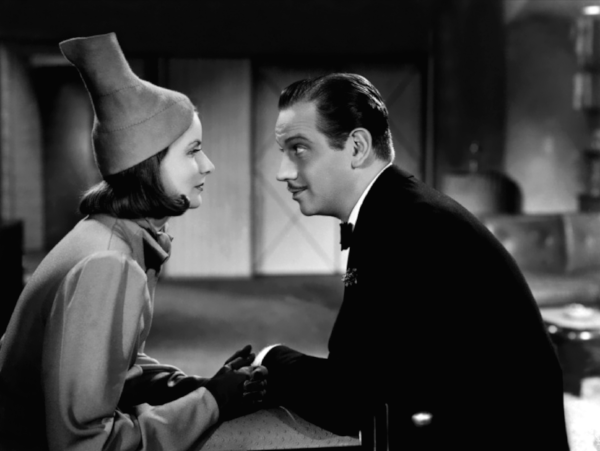Garbo’s Hat: Recognising People’s Right to Be Wrong
Greta Garbo was a Hollywood star of the silent era, adored for her luminous on-screen presence, her sophisticated beauty, her worldly-wise personality. With the advent of ‘talkies’ MGM became nervous. What would audiences make of her heavy Swedish accent? They delayed as long as they could. Then in 1930 Garbo played the eponymous heroine of ‘Anna Christie’. She walked into a bar, collapsed into a chair and demanded:
'Gimme a whiskey, ginger ale on the side, and don't be stingy, baby.’
The studio publicised the movie with posters proclaiming: ‘Garbo talks!’ The public were delighted, and ‘Anna Christie’ was the highest grossing film of the year.
Garbo subsequently performed in a succession of classics, including ‘Grand Hotel’, ‘Queen Christina’, ‘Anna Karenina’ and ‘Camille’. She consistently played melancholic and melodramatic heroines. She was compellingly serious, earnest, pensive. But gradually her popularity began to wane, and in 1939 the studio decided to change tack, casting her in an Ernst Lubitsch comedy, ‘Ninotchka’.
Buljanoff: 'How are things in Moscow?'
Ninotchka: 'Very Good. The last mass trials were a great success. There are going to be fewer but better Russians.'
Garbo plays Ninotchka, a Soviet special envoy sent to Paris to organise a sale of royal Russian jewellery. She is sober, stern, judgemental; unimpressed by bourgeois capitalism.
Ninotchka: 'Why should you carry other people's bags?'
Porter: 'Well, that's my business, Madame.'
Ninotchka: 'That's no business. That's social injustice.'
Porter: 'That depends on the tip.'
Wherever Ninotchka goes in Paris, she is taken aback by its indulgent Western ways. All about her seems shallow and superfluous, petty and pointless. She spots a couture hat in a shop window. It looks rather like a lampshade.
Ninotchka: 'What's that?'
Comrade Kopalski: 'It's a hat, Comrade. A woman's hat.'
Ninotchka: 'How can such a civilization survive which permits their women to put things like that on their heads. It won't be long now, Comrades.'
Ninotchka also encounters the debonair Frenchman, Count Leon (played by Melvyn Douglas). She recognizes that he is rather charismatic, but dismisses him as entirely frivolous.
'Now, don't misunderstand me. I do not hold your frivolity against you. As basic material, you may not be bad; but you are the unfortunate product of a doomed culture. I feel very sorry for you.'
Gradually, however, Ninotchka is seduced by the charms of Paris and the Count. And soon she cannot resist the hat she recently found so contemptible.
‘Ninotchka’ is a magnificent comedy, bristling with elegant witticisms and sharp social satire. It reminded me that, growing up in the midst of the Cold War, we were often prompted to consider the differences between Soviet and Capitalist societies.
To teenagers like me Communism certainly had its appeal: the avowed commitment to equality, the intolerance of plutocrats, the celebration of the workers, the military caps with retractable ear-flaps. But we were also, of course, aware of the suppression of individual freedoms, of Stalin’s dark secrets. And there was a nagging sense that Communism was somehow dull, dreary and joyless; that it didn’t accommodate human foibles and foolishness - the insignificance of pop, the frippery of fashion, the triviality of brands and advertising. In short Communism didn’t seem to afford people the right to be wrong. And this seemed somehow very important to me.
If you work in the field of marketing or advertising and were fortunate enough to grow up after the fall of the Berlin Wall, it’s still perhaps worth reflecting on the differences between Capitalism and Communism. You may conclude like me that ordinary people are capricious, fickle and flighty. They oscillate between profound passions and shallow affections; between ardent commitments and superficial attachments. They can be both serious and silly; consistent and erratic. They can comfortably hold two mutually opposing ideas in their heads at the same time. And that’s what makes us human.
In the critical scene of ‘Ninotchka’ our heroine sits down in a restaurant and orders raw beets and carrots. The owner is unimpressed:
'Madame, this is a restaurant, not a meadow.'
Count Leon does everything he can to entertain her over lunch - all to no avail. Finally he resorts to a joke.
'A man comes into a restaurant. He sits down at the table. He says, "Waiter, bring me a cup of coffee without cream." Five minutes later the waiter comes back and says, "I'm sorry sir, we have no cream, can it be without milk?"'
Ninotchka is still not amused, but when the Count accidentally tumbles from his chair, she breaks into cascades of joyous laughter. Ninotchka’s defences have been breached by a ludicrous pratfall. And Garbo shows a hitherto concealed gift for comedy.
This time round the promotional posters were headlined: ‘Garbo laughs!’
'By the look in your eye I can tell you're gonna cry.
Is it over me?
If it is, save your tears for I'm not worth it, you see.
For I'm the kind of guy who is always on the roam,
Wherever I lay my hat, that's my home.’
Marvin Gaye, Wherever I Lay My Hat (That's My Home) (Barrett Strong/ Marvin Gaye/ Norman Whitfield)
No. 207

